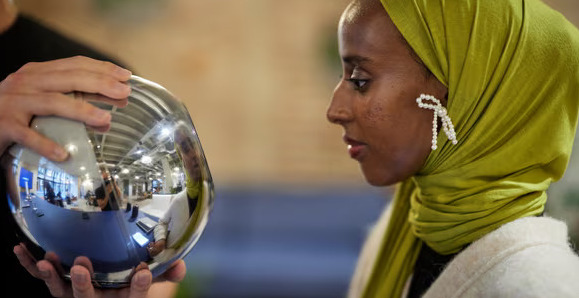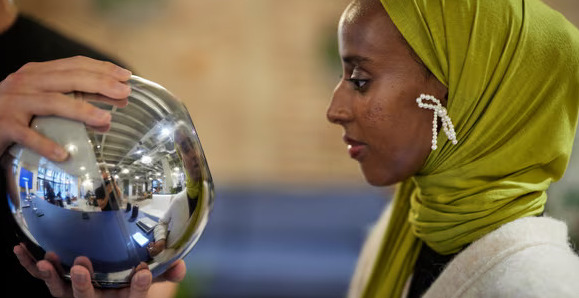Worldcoin’s Biometric ID System: Privacy Risk or Financial Security?

Worldcoin, a cryptocurrency venture co-founded by Sam Altman, CEO of ChatGPT developer OpenAI, aims to revolutionize financial security in the age of artificial intelligence through a unique biometric verification process. The company uses eye-scanning technology, known as the “Orb,” to ensure users are genuine humans before granting them access to their cryptocurrency wallets. While some view this as a promising step towards securing digital assets, others raise concerns about privacy risks associated with the collection and storage of sensitive biometric data.
Worldcoin’s aspirations go beyond standard crypto projects, as its founders envision it as a platform capable of “enabling global democratic processes” and potentially funding a universal basic income with the prosperity generated by artificial intelligence. To attract cryptocurrency enthusiasts, the company offered a “genesis grant” of 25 Worldcoin tokens (equivalent to approximately £40) to early sign-ups through the WorldApp.
However, to achieve full verification, users must undergo an eye scan at one of the 1.5k Orbs located in over 35 cities worldwide. This digital passport, known as the “World ID,” confirms a user’s uniqueness and authenticity while ensuring anonymity. The process takes around 15 seconds and involves capturing the iris with a wide-angle and telephoto camera.
Although Worldcoin emphasizes the privacy of its biometric ID system, critics voice concerns about the potential risks involved. The UK’s Information Commissioner’s Office has expressed intentions to conduct further inquiries into Worldcoin’s practices, while privacy campaign group Big Brother Watch highlights the possibility of biometric data being hacked or exploited.
The lengthy terms and conditions presented during the verification process raise questions about user understanding and consent. While users have the option to read the terms, the time-consuming nature of the document may lead to insufficient scrutiny. The responsibility to comprehend and accept the terms falls on the users themselves.
As the biometric ID system gains popularity, individuals weigh the potential benefits against privacy risks. Ed Lerant, a 20-year-old game design student, sees the iris scans as a simple measure to prevent bots from exploiting cryptocurrencies, focusing primarily on the financial advantages rather than the implications of biometric data storage.
Worldcoin’s foray into biometric verification exemplifies the ongoing tension between advancing technology and safeguarding privacy. As digital ID systems continue to emerge, balancing the convenience and security they offer with privacy and data protection remains a significant challenge for both users and regulators.





